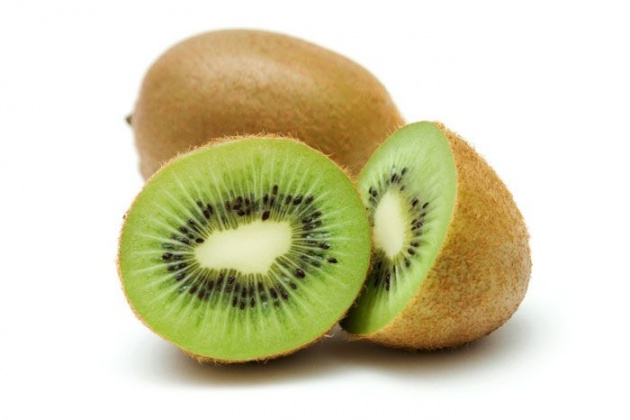
The kiwifruit, native to northern China, was first brought to and cultivated in New Zealand at the turn of the 20th century and was then known as the Chinese Gooseberry.
When the time came to export the fruit, to avoid the high duties charged on berries, the name was changed to the kiwifruit, or kiwi because of the fruit's shared characteristics with New Zealand's national symbol, the kiwi bird, which is also small, brown and fuzzy.
Kiwis are a nutrient dense food, meaning they are high in nutrients and low in calories. The possible health benefits of consuming kiwis include maintaining healthy skin tone and texture, reducing blood pressure and preventing heart diseases and stroke.
Possible health benefits of consuming kiwifruit
Consuming fruits and vegetables of all kinds has long been associated with a reduced risk of heart disease,diabetes, cancer and other conditions. Many studies have shown that increased consumption of plant foods like kiwis decreases the risk of obesity and overall mortality.
Beautiful Skin:
Collagen, the skins support system, is reliant on vitamin C as an essential nutrient that works in our bodies as an antioxidant to help prevent damage caused by the sun, pollution and smoke, smooth wrinkles and improve overall skin texture.
Better Sleep:
According to a study on the effects of kiwifruit consumption on sleep qualtiy in adutls with sleep problems, it was found that kiwi consumption may improve sleep onset, duration, and efficiency in adults with self-reported sleep disturbances.
Heart Health:
The fiber and potassium in kiwis support heart health. An increase in potassium intake along with a decrease in sodium intake is the most important dietary change that a person can make to reduce their risk of cardiovascular disease, according to Mark Houston, MD, MS, an associate clinical professor of medicine at Vanderbilt Medical School and director of the Hypertension Institute at St Thomas Hospital in Tennessee.
In one study, those who consumed 4069 mg of potassium per day had a 49% lower risk of death from ischemic heart disease compared with those who consumed less potassium (about 1000 mg per day).
High potassium intakes are also associated with a reduced risk of stroke, protection against loss of muscle mass, preservation of bone mineral density and reduction in the formation of kidney stones.
Lowering Blood Pressure: Because of their high potassium content, kiwis can help negate the effects of sodium in the body. It is possible that a low potassium intake is just as big of a risk factor in developing high blood pressure as a high sodium intake.
According to the National Health and Nutrition Examination Survey, fewer than 2% of US adults meet the daily 4700 mg recommendation for potassium.
Also of note, a high potassium intake is associated with a 20% decreased risk of dying from all causes.
Constipation Prevention: Numerous studies have reported that the kiwi may have a mild laxative effect and could be used as a dietary supplement especially for elderly individuals experiencing constipation. Regular consumption of kiwifruit was shown to promote bulkier, softer and more frequent stool production.



